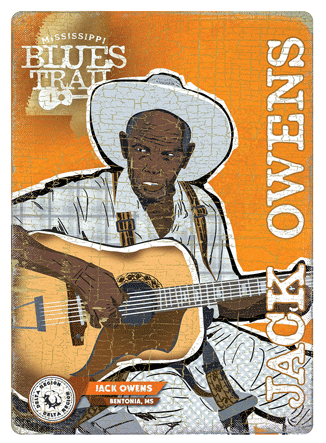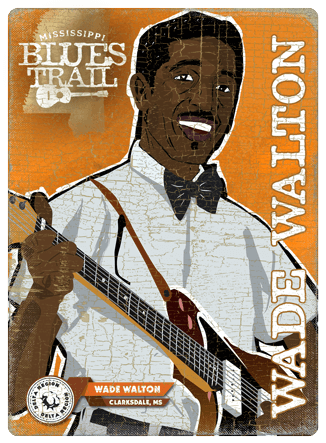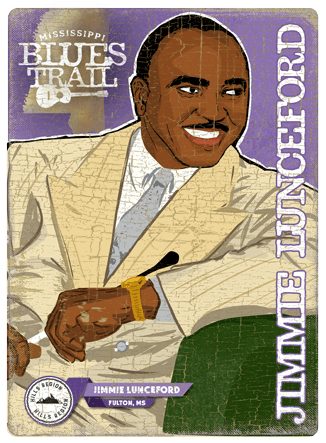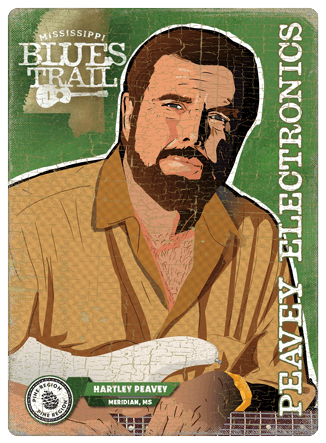
Jack Owens became one of Mississippi’s most venerated blues artists in the 1980s and ‘90s after spending most of his life as a farmer in Yazoo County. Born November 17, 1904, or 1906 according to some sources, Owens did not perform outside the state of Mississippi until 1988. During his final years he and his harmonica player, Bud Spires, traveled together to many festivals and performed on Owens’s front porch for hundreds of visitors. Owens died on February 9, 1997.
Owens belonged to the pioneering generation of Bentonia bluesmen, which included Nehemiah “Skip” James (1902-1969) and Henry Stuckey (1897-1966). Stuckey is often regarded as the seminal local blues figure, but researchers have yet to discover any recordings or photographs of him. James ranks as Bentonia’s most internationally renowned musician, known for the striking quality of the music on his 1931 recordings for the Paramount label and for a briefly rejuvenated career during the blues revival of the 1960s. Just as James’s recording career was nearing its end, Owens was beginning his, in 1966; his first album, produced by musicologist Dr. David Evans, was not released until 1971. But during the following decades Owens became Bentonia’s resident celebrity. Local citizens grew accustomed to the sight of tour buses, vans, and cars with out-of-state license plates, sometimes loaded with cameras and recording equipment, heading for Owens’s house just north of this site off Rose Hill Road.
The music of Owens and James, as Evans wrote, was distinguished by “haunting, brooding lyrics dealing with such themes as loneliness, death and the supernatural . . . Altogether it is one of the eeriest, loneliest and deepest blues sounds ever recorded.” Neither Owens’s music nor his lifestyle in Bentonia changed much over the years. He clung to old ways and superstitions, including burying money in the ground and hanging bottles from his trees, and was reputed to be the last farmer in the area to plow with a mule. He once made moonshine and ran juke joints in or near his house. Even in his nineties he kept a pistol or shotgun at hand but claimed he had not shot anyone in several years. Documentary filmmakers were duly fascinated, and Owens appeared in Alan Lomax’s Land Where the Blues Began and Robert Mugge’s Deep Blues, as well as a commercial for Levi’s 501 Blues. After making a few festival appearances in Mississippi, he accepted offers to perform in Atlanta, St. Louis, Chicago, New York, Europe, and elsewhere, and took his first plane flight in 1992. The National Endowment for the Arts awarded him a National Heritage Fellowship in 1993.
Owens is buried in the Day Cemetery east of Bentonia. Only at his funeral was his real name, L. F. Nelson, revealed. He left protégés Jimmy “Duck” Holmes, proprietor of the Blue Front café, and harmonica player Benjamin “Bud” Spires to carry on the Bentonia blues tradition. Spires, who was born in Anding on May 20, 1931, was Owens’s steadfast musical companion for some thirty years. He was the son of guitarist Arthur “Big Boy” Spires (1912-1990), a Yazoo County native who moved to Chicago and recorded several songs that are considered classics of down-home postwar blues.


